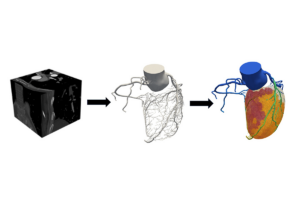Competition judging can appear to be a baffling, highly technical endeavor to non-expert outsiders. Judges watch a performance by a figure skater or platform diver or pianist, scrutinize form and record detailed numerical scores.
But at the Menuhin Competition, the pre-eminent international competition for young violinists being held at UT this week, technical excellence is expected; it’s a given for the field of 42 contestants from around the world.
The expert panel of Menuhin judges (in this case, called jurors) are listening for something that even an untrained music fan can spot: the “goose bump” factor.
“Who moves you? That’s what the jury is looking for,” explained Sandy Yamamoto, a former member of UT’s acclaimed Miró Quartet. Yamamoto and Menuhin Competition artistic director Gordon Back gave a talk Tuesday called “The Juror’s Ear,” sharing their insights with a roomful of contestants, parents and enthusiasts at the Butler School of Music.
[Learn about more events during the Menuhin Competition‘s stay in Austin.]
“For most competitions, there’s a more complex scoring system, like the Olympics, where computers are involved, and percentages are involved, averages are involved,” Yamamoto said. But the Menuhin jurors are making a simple choice.
“Really, all the judges do is check, YES, I want this contestant to go through, or NO, I don’t think this contestant should go through,” she said.
In essence, Back explained, they’re asking themselves, “Would you buy a ticket to see this person perform a second time?”
Performing is one thing the Menuhin jurors share in common with the young contestants they’re evaluating. All nine members of the international panel including Anton Nel, professor of piano and chamber music, and Brian Lewis, professor of violin, at the Butler School are current performers rather than professional judges who move from competition to competition. And at points throughout the 10-day event, the jurors perform alongside the contestants.
“It really puts the jury members and the contestants on an even playing level,” said Yamamoto, also a member of the Butler School’s faculty. “It feels like this is a festival where we’re sharing the love and joy of music; and it’s not so much, ‘We are the jury members, you are the contestants. Now you will play for me.'”
The jury members also offer master classes during the competition, giving contestants access to coaching from some of the world’s top performers.
“You’re meeting your future colleagues, you’re meeting the people you might be working with one day,” Yamamoto said.
By Sunday’s closing gala concert, the jurors will have chosen winners after all, that is their job but during their time in Austin, they will be joining the contestants and the audience in the celebration of music.

Home page image by Daniel Cavazos. Menuhin Competition junior division winner Kevin Zhu performs with the University of Texas Symphony Orchestra during the opening concert at the Long Center on Feb. 21.



